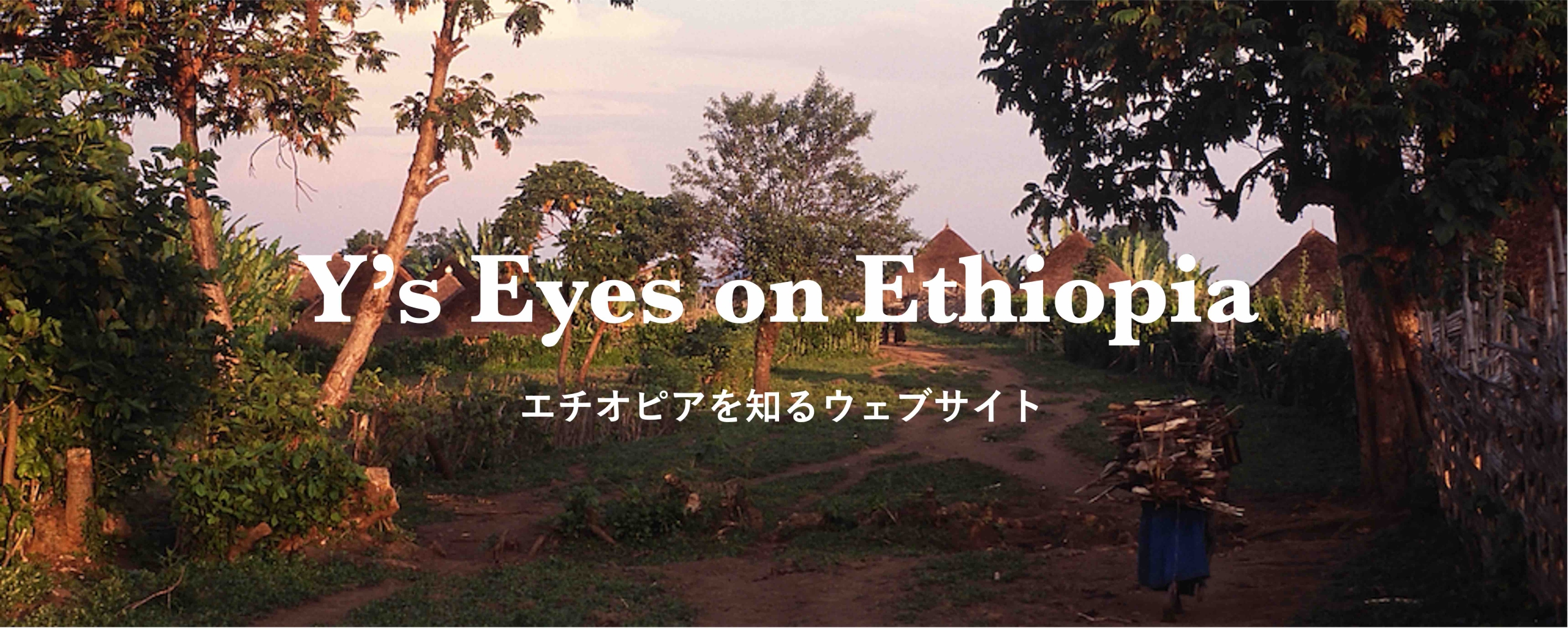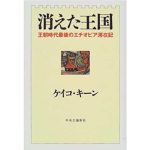エチオピアのアビィ・アハメド・アリ首相:ノーベル賞受賞者講演(全文&和訳)
Nobel Lecture given by Nobel Peace Prize Laureate 2019 Abiy Ahmed Ali, Oslo, 10 December 2019.
ノーベル平和賞受賞者、アビィ・アハメド・アリ氏によるノーベル賞受賞者講演
2019年12月10日 オスロ。
“Forging A Durable Peace in the Horn of Africa”
「アフリカの角に永続的平和を築き上げる」
Your Majesties, Your Royal Highnesses,
Distinguished members of the Norwegian Nobel Committee,
Fellow Ethiopians, Fellow Africans, Citizens of the World
Ladies and Gentlemen,
国王陛下、並びに殿下、ノルウェー・ノーベル委員会の皆さま、エチオピア国民の皆さま、アフリカ人の皆さま、世界の皆さま、ご来場の皆さま。
I am honored to be here with you, and deeply grateful to the Norwegian Nobel Committee for recognizing and encouraging my contribution to a peaceful resolution of the border dispute between Ethiopia and Eritrea.
この場に皆さまと一緒にいることを光栄に思います。
ノルウェー・ノーベル委員会の皆さまには、エチオピアとエリトリアの国境紛争の平和的解決に対する私の貢献を認め、奨励していただき、深く感謝いたします。
I accept this award on behalf of Ethiopians and Eritreans, especially those who made the ultimate sacrifice in the cause of peace.
私はこの賞をエチオピア、エリトリアの皆さま、特に平和を達成するために最大の犠牲を払ってくれた方々、に捧げたいと思います。
Likewise, I accept this award on behalf of my partner, and comrade-in-peace, President Isaias Afeworki, whose goodwill, trust, and commitment were vital in ending the two-decade deadlock between our countries.
同じようにパートナーであり平和の同友である、イサイヤス・アフォルキ大統領にもこの受賞を捧げます。
彼の、友好、信頼、コミットメントは20年間にも及ぶ二国間の膠着状態を終わらせるために、不可欠なものでした。
I also accept this award on behalf of Africans and citizens of the world for whom the dream of peace has often turned into a nightmare of war.
また、平和への思いが戦争という悪夢に踏みにじられてしまったアフリカや世界の人々にもこの受賞を届けたいと思います。
Today, I stand here in front of you talking about peace because of fate.
今日、こうして皆さまの前に立ち、平和についてお話させていただいていることは、私にとっては運命的な出来事です。
I crawled my way to peace through the dusty trenches of war years ago.
数年前、私は平和のために埃っぽい戦地の塹壕を這い回っていました。
I was a young soldier when war broke out between Ethiopia and Eritrea.
エチオピアとエリトリアで戦争が勃発した時、私は、若い軍人でした。
I witnessed firsthand the ugliness of war in frontline battles.
私はこの目で、戦争の前線で、戦争の醜さを目撃しました。
There are those who have never seen war but glorify and romanticize it.
世の中には、戦争を見たこともないにもかかわらず、戦争を賛美し、理想化する人々がいます。
They have not seen the fear,
彼らは恐怖を見たことがないのです。
They have not seen the fatigue, 彼らは、疲れを知らないのです。
They have not seen the destruction or heartbreak, 彼らは、心が壊れたり、傷ついたりすることを知らないのです。
Nor have they felt the mournful emptiness of war after the carnage.
また、彼らは戦争による虐殺の後に残る悲しい空虚感を感じたことはないのです。
War is the epitome of hell for all involved. I know because I have been there and back.
戦争は、かかわったことにあるものにしてみれば、地獄の典型でしかありません。戦争を体験して、戻ってきたことがある私んはわかるのです。
I have seen brothers slaughtering brothers on the battlefield.
私は、戦地で同友が同友を殺すところを見ました。
I have seen older men, women, and children trembling in terror under the deadly shower of bullets and artillery shells.
私は、老人、女性、子どもたちが、死を招きかねない降り注ぐ銃弾や砲弾に恐怖で震えているところを見たことがあります。
You see, I was not only a combatant in war.
みなさん、お分かりの通り、戦場では私が一人で戦っているわけではありません。
I was also a witness to its cruelty and what it can do to people.
私は、戦争の残酷さと戦争が人に何をするのかを見た目撃者でもありました。
War makes for bitter men. Heartless and savage men.
戦争は人を冷酷、無情にし、凶暴にします。
Twenty years ago, I was a radio operator attached to an Ethiopian army unit in the border town of Badme.
20年前、私は国境沿いの街、バドメに配備されているエチオピア軍に従軍する無線操縦士でした。
The town was the flashpoint of the war between the two countries.
この町は二つの国にとっては火薬庫でした。
I briefly left the foxhole in the hopes of getting a good antenna reception.
私は少しの間、アンテナの調整をするために隠れ家を抜け出しました。
It took only but a few minutes. Yet, upon my return, I was horrified to discover that my entire unit had been wiped out in an artillery attack.
ほんの数分のことでした。
しかし、私が戻ると私が一緒にいた部隊の全てが砲弾によって消えて無くなっていました。
I still remember my young comrades-in-arms who died on that ill-fated day.
この不運な日に、私の腕の中で死を遂げた同友のことを今でも思い出します。
I think of their families too.
彼の家族のことも思い出します。
During the war between Ethiopia and Eritrea, an estimated one hundred thousand soldiers and civilians lost their lives.
エチオピアとエリトリアの戦争で、約10万人もの軍人と市民が命を失いました。
The aftermath of the war also left untold numbers of families broken. It also permanently shattered communities on both sides.
戦争の後も、数え切れないほどの家族たちが離れ離れになりました。戦争は恒久的に両国間の地域社会を分断しました。
Massive destruction of infrastructure further amplified the post-war economic burden.
Socially, the war resulted in mass displacements, loss of livelihoods, deportation and denationalization of citizens.
大規模なインフラの破壊は戦後の経済成長の大きな足かせとなりました。社会的には、戦争は多くの難民、生活手段の欠如、国外追放や市民権剥奪を生じさせませた。
Following the end of active armed conflict in June 2000, Ethiopia and Eritrea remained deadlocked in a stalemate of no-war, no-peace for two decades.
2000年6月の紛争後は、エチオピアとエリトリアは20年ものあいだ、無戦争・無平和状態の膠着状態に陥りました。
During this period, family units were split over borders, unable to see or talk to each other for years to come.
この期間、家族は国境を挟んで離散し、何年間も会うことも、話すこともできずにいました。
Tens of thousands of troops remained stationed along both sides of the border.
数万人もの軍人が国境の両側に待機している状態となりました。
They remained on edge, as did the rest of the country and region.
彼らは、瀬戸際に立たされていたのです。そう、私たちの国と同じように。
All were worried that any small border clash would flare into a full-blown war once again.
みんなが、小さな国境のいざこざが大規模な国家間戦争に繋がると不安を感じていました。
As it was, the war and the stalemate that followed were a threat for regional peace, with fears that a resumption of active combat between Ethiopia and Eritrea would destabilize the entire Horn region.
戦争と戦後にもたらされた膠着状態は、地域の平和を脅かすと同時に、アフリカの角全域の安定を崩すことにつながりかねない、エチオピアとエリトリアの戦争が繰り返されるという恐怖をもたらしました。
And so, when I became Prime Minister about 18 months ago, I felt in my heart that ending the uncertainty was necessary.
18ヶ月前に私が首相になったとき、そのような状態を終わらせることが必要であると心に強く感じました。
I believed peace between Ethiopia and Eritrea was within reach.
エチオピアとエリトリアの平和は可能だと信じました。
I was convinced that the imaginary wall separating our two countries for much too long needed to be torn down.
二つの国を分け隔てている想像上の壁は壊されなければならないと確信しました。
And in its place, a bridge of friendship, collaboration and goodwill has to be built to last for ages.
そして、その趾には友好、協力、信頼の橋を、何年経っても壊れない橋を建てなけれいけません。
That is how I approached the task of building a peace bridge with my partner President Isaias Afeworki.
このようにして、私はパートナーであるイサイヤス・アフォルキ大統領と平和の橋を建てる作業をはじめました。
We were both ready to allow peace to flourish and shine through.
私たちには平和が繁栄し輝くための準備ができていました。
We resolved to turn our “swords into plowshares and our spears into pruning hooks” for the progress and prosperity of our people.
私たちは人民の発展と繁栄のために「剣を鋤に変え、槍を枝打ち鎌に変える」ことにしました。
We understood our nations are not the enemies. Instead, we were victims of the common enemy called poverty.
私たちの国は敵同士ではなく、貧困という名の共通の敵の被害者であったということを確認しました。
We recognized that while our two nations were stuck on old grievances, the world was shifting rapidly and leaving us behind.
私たち二つの国が古い不満に囚われている間に、世界は急速に変化し、私たちをおいてけぼりにしてしまったということに気がつきました。
We agreed we must work cooperatively for the prosperity of our people and our region.
私たちは、人民の、地域の繁栄のために共に働くことに合意しました。
Excellencies, Ladies and Gentlemen,
陛下、そしてみなさん、
Today, we are reaping our peace dividends.
今日、私たちは平和の成果を享受しています。
Families separated for over two decades are now united.
20年以上も離れ離れになっていた家族は再会しました。
Diplomatic relations are fully restored.
国交は完全に回復しました。
Air and telecommunication services have been reestablished.
空路、電信電話は再建されました。
And our focus has now shifted to developing joint infrastructure projects that will be a critical lever in our economic ambitions.
そして、今、私たちは共同で、私たちの経済活動の重要な手段となる、インフラ開発プロジェクトを開始しようとしています。
Our commitment to peace between our two countries is iron-clad.
私たち、二つの国の平和へのコミットメントは一分の隙間のない鉄のように硬いものです。
One may wonder, how it is that a conflict extending over twenty years, can come to an amicable resolution.
20年以上も続いた紛争が友好的な結果に落ち着いたことを疑問に思う方もいるかもしれません。
Allow me to share with you a little about the beliefs that guide my actions for peace.
私の平和に向けた行動を起こさせた信念について少し、お話しさせてください。
I believe that peace is an affair of the heart. Peace is a labor of love. 平和とは心の問題だと私は信じています。平和は愛の仕事なのです。
Sustaining peace is hard work.
平和を維持するということは難しい仕事です。
Yet, we must cherish and nurture it.
しかし、私たちはそれを大切にし、育てなければいけません。
It takes a few to make war, but it takes a village and a nation to build peace.
戦争をはじめるのに必要なのは数人です。しかし、平和を構築するとなると一つの村、一つの国ほどの規模が必要になります。
For me, nurturing peace is like planting and growing trees.
私にとって、平和を育てるといことは、木を植えて育てることに似ています。
Just like trees need water and good soil to grow, peace requires unwavering commitment, infinite patience, and goodwill to cultivate and harvest its dividends.
木が水と良い土を必要とするのと同じで、平和を育て、その果実を収穫するためには、揺るぎないコミットメント、無限の忍耐、信頼が必要です。
Peace requires good faith to blossom into prosperity, security, and opportunity.
平和には繁栄として花開く信頼、安全、機会が必要です。
In the same manner that trees absorb carbon dioxide to give us life and oxygen, peace has the capacity to absorb the suspicion and doubt that may cloud our relationships.
木が二酸化炭素を吸って、私たちに命と酸素をくれるように、平和は私たちの関係に暗黙を導く不信感と疑惑を吸収してくれます。
In return, it gives back hope for the future, confidence in ourselves, and faith in humanity.
そして、見返りとして将来に向けての希望、自信、人間性への信頼をもたらしてくれます。
This humanity I speak of, is within all of us.
私が話しをしている人間性とは、すべての人々の中にあるものです。
We can cultivate and share it with others if we choose to remove our masks of pride and arrogance.
もしも、私たちがプライドや横柄さの仮面を外したのであれば、私たちは平和を耕し、他の人々と共有することができます。
When our love for humanity outgrows our appreciation of human vanity then the world will know peace.
私たちの人間への愛は、人間的な自惚れを失わさせ、世界は平和を知ることができるのです。
Ultimately, peace requires an enduring vision. And my vision of peace is rooted in the philosophy of Medemer.
最終的に、平和には永続的なビジョンが必要です。そして、私の平和のビジョンはメデマー(Medemer)という考えに基づいたいます。
Medemer, an Amharic word, signifies synergy, convergence, and teamwork for a common destiny.
メデマーとは、アムハラ語の言葉で、共通の目的に向かった共同、集合、チームワークを表す言葉です。
Medemer is a homegrown idea that is reflected in our political, social, and economic life.
メデマーは、私たちの国で育った考え方で、これは私たちの政治、社会、経済に影響を与えています。
I like to think of “Medemer” as a social compact for Ethiopians to build a just, egalitarian, democratic, and humane society by pulling together our resources for our collective survival and prosperity.
私は、メデマーを、エチオピアの人々が持ちうる資源を集めて、集団的な生存、繁栄に向けて、平等かつ、民主的、そして人道的な社会を作りあげるための、社会的に凝縮されたアイディアだと考えています。
In practice, Medemer is about using the best of our past to build a new society and a new civic culture that thrives on tolerance, understanding, and civility.
実践的にメデマーは、寛容さ、理解、礼儀正しさの基に繁栄する新しい市民文化を作りあげるために、過去の良いものを使う、ということでもあります。
At its core, Medemer is a covenant of peace that seeks unity in our common humanity.
そして、メデマーの核心には、私たちの人間性を統合する平和の契約があります。
It pursues peace by practicing the values of love, forgiveness, reconciliation, and inclusion.
それは、愛、許し、和解、抱合を実践することによって平和を後押しします。
Excellencies, Ladies and Gentlemen,
陛下、そして皆さん、
I come from a small town called Beshasha, located in the Oromia region of Western Ethiopia.
私の出身地はエチオピア西部のオロミア州のバシャシャという小さな街です。
It is in Beshasha that the seeds of Medemer began to sprout.
バシャシャにメデマーが芽を出す種があります。
Growing up, my parents instilled in me and my siblings, an abiding faith in humanity.
私の両親は、私と兄弟たちに人間への信頼をなくさないことを教え込みました。
Medemer resonates with the proverb, “I am my brother’s keeper. I am my sister’s keeper.”
メデマーは古いことわざにも言い表されています。「私は弟の世話係。私は妹の世話係」。
In my little town, we had no running water, electricity, or paved roads. But we had a lot of love to light up our lives.
私の小さな町には水道水、電気、舗装された道路はありませんでした。しかし、そこには私たちの人生を彩ってくれる、たくさんの愛がありました。
We were each other’s keepers.
私たちはお互いの世話係です。
Faith, humility, integrity, patience, gratitude, tenacity, and cooperation coursed like a mighty stream.
信頼、人間性、誠実さ、忍耐、感謝、ねばり強さ、そして協力が大きな流れとなりました。
And we traveled together on three country roads called love, forgiveness, and reconciliation.
そして、私たちは一緒に、愛、容赦、和解という3つの田舎道を旅しました。
In the Medemer idea, there is no “Us and Them.”
メデマーという考え方には「私たちとあなたたち」という考え方はありません。
There is only “US” for “We” are all bound by a shared destiny of love, forgiveness, and reconciliation.
そこには、「私たち」のための「私たち」がひとかたまりとなって、愛と容赦と和解を共有しているのです。
For the people in the “Land of Origins” and “The 13 Months of Sunshine,” Medemer has always been second nature.
「人類発祥の地」「13ヶ月間の陽だまり」の国の人々にとって、メデマーは第二の天性なのです。
Ethiopians maintained peaceful coexistence between the followers of the two great religions because we always came together in faith and worship.
エチオピア人は二つの大きな宗教の信者の平和的な共存を維持してきました。その背景には信頼と信仰があったからです。
We, Ethiopians, remained independent for thousands of years because we came together to defend our homeland.
エチオピア人は数千年もの間、国の独立を維持してきました。なぜなら、私たちは一緒になって自分の国を守ってきたからです。
The beauty of our Ethiopia is its extraordinary diversity.
エチオピアの素晴らしいところは、並外れた多様性です。
The inclusiveness of Medemer ensures no one is left behind in our big extended family.
メデマーの包括性は、世界に広がる私たち家族を、誰一人とり残さない、ことを約束しています。
It has also been said, “No man is an island.”
また、「誰一人として孤独ではない」とも言われています。
Just the same, no nation is an island.
同じように、どの国も孤独ではありません。
Ethiopia’s Medemer-inspired foreign policy pursues peace through multilateral cooperation and good neighborliness.
エチオピアのメデマーに影響を受けた外交政策は、多国間協力と良好な近隣関係を通じて平和を推し進めて行きます。
We have an old saying:
古い格言があります。
“በሰላም እንድታድር ጎረቤትህ ሰላም ይደር”(アムハラ語)
“yoo ollaan nagayaan bule, nagaan bulanni.”(オロモ語)
It is a saying shared in many African languages, which means, “For you to have a peaceful night, your neighbor shall have a peaceful night as well.”
これは、多くのアフリカ諸国の言語で共有されている格言ですが、「平和な夜を過ごすためには、あなたの隣近所も平和な夜を過ごしていなければならない」という意味です。
The essence of this proverb guides the strengthening of relations in the region.
この格言のエッセンスは、地域内の関係を強化します。
We now strive to live with our neighbors in peace and harmony.
現在、私たちは近隣色が平和であり、調和的であるように動いています。
The Horn of Africa today is a region of strategic significance.
アフリカの角の今日は、戦略的に重要な場所となっています。
The global military superpowers are expanding their military presence in the area.
世界的な軍事大国がこの地域に軍事力を拡大させています。
Terrorist and extremist groups also seek to establish a foothold.
テロリストや過激派グループが拠点にもしています。
We do not want the Horn to be a battleground for superpowers nor a hideout for the merchants of terror and brokers of despair and misery.
私たちはアフリカの角が大国の戦場となることは望んでいませんし、恐怖の商人や絶望と不幸のブローカーの隠れ家になることも望んでいません。
We want the Horn of Africa to become a treasury of peace and progress.
私たちは、アフリカの角を平和と発展の宝庫にしたいと思っています。
Indeed, we want the Horn of Africa to become the Horn of Plenty for the rest of the continent.
確かに、私たちはアフリカの角がアフリカ大陸にとって、豊穣の角になって欲しいのです。
Excellencies, Ladies and Gentlemen,
陛下、そして皆さん
As a global community, we must invest in peace.
地球社会として、私たちは平和に投資をしなければいけません。
Over the past few months, Ethiopia has made historic investments in peace, the returns of which we will see in years to come.
ここ数ヶ月、エチオピアは平和に対して歴史的な投資を行い、その成果は数年後に見られることになるでしょう。
We have released all political prisoners.
私たちはすべての政治犯を釈放しました。
We have shut down detention facilities where torture and vile human rights abuses took place.
私たちは、拷問やひどい人権侵害が行われていた、すべての収容施設を閉鎖しました。
Today, Ethiopia is highly regarded for press freedom.
今日、エチオピアには質の高い報道の自由があります。
It is no more a “jailor of journalists”.
エチオピアは「ジャーナリストのための看守」ではなくなりました。
Opposition leaders of all political stripes are free to engage in peaceful political activity.
反対勢力の政党リーダーたちは、皆自由に平和的な政治活動ができるようになっています。
We are creating an Ethiopia that is second to none in its guarantee of freedoms of expression.
私たちは、エチオピアを二つとない自由を保証する国にしています。
We have laid the groundwork for genuine multiparty democracy, and we will soon hold a free and fair election.
私たちは多政党民主主義の基礎を作りあげ、近いうちに自由な公正な選挙を行います。
I truly believe peace is a way of life. War, a form of death and destruction.
私は本当に平和が人生のあるべき姿だと信じています。戦争は死と破壊を具現化したものでしかありません。
Peacemakers must teach peace breakers to choose the way of life.
平和活動家は平和破壊者に行き方を教えてあげなければいけません。
To that end, we must help build a world culture of peace.
最終的には、私たちは平和の世界的な文化を築かなければいけません。
But before there is peace in the world, there must be peace in the heart and mind.
しかし、世界平和の前に心と頭に平和があるべきです。
There must be peace in the family, in the neighborhood, in the village, and the towns and cities. There must be peace in and among nations.
家族、近所、村、町、都市に平和がなければいけないのです。そして国家間に平和がなくてはいけないのです。
Excellencies, ladies, and gentlemen: 陛下、そして皆さん、
There is a big price for enduring peace.
永続的な平和には大きな代償があります。
A famous protest slogan that proclaims, “No justice, no peace,” calls to mind that peace thrives and bears fruit when planted in the soil of justice.
「正義がなければ、平和がない」という有名なスローガンがあります。これは平和は正義の土に植えなければ果実は実らない、ということだと思います。
The disregard for human rights has been the source of much strife and conflict in the world.
世界では人権侵害が争いや紛争の原因となっています。
The same holds in our continent, Africa.
アフリカでも同じことがおこっています。
It is estimated that some 70 percent of Africa’s population is under the age of 30.
70%ものアフリカの人口が30歳以下だと推定されています。
Our young men and women are crying out for social and economic justice.
若い男性、女性は社会的、経済的正義について声をあげています。
They demand equality of opportunity and an end to organized corruption.
彼らは機会の平等と組織的汚職の終焉を求めています。
The youth insist on good governance based on accountability and transparency.
若者は説明責任と透明性に基づいた統治を主張しています。
If we deny our youth justice, they will reject peace.
もし私たちが若い正義を拒否したならば、彼らは平和を拒否することでしょう。
Standing on this world stage today, I would like to call upon all my fellow Ethiopians to join hands and help build a country that offers equal justice, equal rights, and equal opportunities for all its citizens.
この世界的なステージの上に立って、私はエチオピアの人々全員に手と手を出し合って、すべての国民が平等な正義、平等な権利、機会の平等を享受できる国を作ろうじゃないか、と呼びかけたいと思います。
I would like to especially express that we should avoid the path of extremism and division, powered by politics of exclusion.
特に、政治からの排除によって過激派に至る道を開けることは避けなければならないと伝えたい。
Our accord hangs in the balance of inclusive politics.
私たちの合意は包摂的な政治のバランスの上に成り立っているのです。
The evangelists of hate and division are wreaking havoc in our society using social media.
嫌悪の伝道者はソーシャルメディアを使って、社会の大破壊を導こうとしている。
They are preaching the gospel of revenge and retribution on the airwaves.
彼らは復讐と仕返しの説教とゴスペルを電波にのせている。
Together, we must neutralize the toxin of hatred by creating a civic culture of consensus-based democracy, inclusivity, civility, and tolerance based on Medemer principles.
同時に私たちは、メドマーによって作られた合意民主主義、包摂性、礼儀正しさ、寛容さを基礎とした、市民文化を作り上げることで、増悪を中和しなければならない。
The art of building peace is a synergistic process to change hearts, minds, beliefs and attitudes, that never ceases.
平和を構築する仕事は、心、頭、信条、態度を変えるための終わらないプロセスである。
It is like the work of struggling farmers in my beloved Ethiopia.
私が愛するエチオピアの必死に頑張っている農民の仕事のようでもあるのだ。
Each season they prepare the soil, sow seeds, pull weeds, and control pests.
季節がやってくると土を用意し、種をまき、草をむしり、害虫を駆除する。
They work the fields from dawn to dusk in good and bad weather.
晴れていても、雨が降っていても彼らは畑で夜明けから日が暮れるまで働く。
The seasons change, but their work never ends.
季節が変わっても彼らの仕事は終わることがない。
In the end, they harvest the abundance of their fields.
最後には、豊作となった畑を収穫する。
Before we can harvest peace dividends, we must plant seeds of love, forgiveness, and reconciliation in the hearts and minds of our citizens.
平和の果実を収穫する前に、私たちは愛と容赦と和解の種を市民の心と頭に蒔かなければならない。
We must pull out the weeds of discord, hate, and misunderstanding and toil every day during good and bad days too.
不一致、増悪、誤解の草をむしり、良い日も悪い日も精を出して働かなければいけない。
I am inspired by a Biblical Scripture which reads:
“Blessed are the peacemakers, for they shall be called the children of God.”
私は聖書の言葉に奮起させらている。
「祝福されたのは平和構築者である。彼らのことを神の子どもたちと呼ぼうではないか」。
Equally I am also inspired by a Holy Quran verse which reads:
“Humanity is but a single Brotherhood. So, make peace with your Brethren.”
また私はコーランの節にも奮起させられている。
「人間性は一つの同胞である。だから、兄弟たちと平和を築きなさい」。
I am committed to toil for peace every single day and in all seasons.
私はすべての季節において毎日平和のために精を出して働くことにコミットしている。
I am my brother’s keeper. I am my sister’s keeper too.
私は兄弟の世話係である。私は姉妹の世話係でもある。
I have promises to keep before I sleep.
私は眠る前に、守らなければならない約束がある。
I have miles to go on the road of peace.
私は平和の道をまだ何マイルも行かなければいけない。
As I conclude, I call upon the international community to join me and my fellow Ethiopians in our Medemer inspired efforts of building enduring peace and prosperity in the Horn of Africa.
最後に、国際社会に呼びかけます。私とエチオピアの人々に加わり、メドマーに奮起して永続的な平和、繁栄をアフリカの角にもたらしましょう。
ሰላም ለሁላችንም፤ ለሰላም አርበኖች እንዲሁም ለሰላም ወዳጆች።
I thank you!
ありがとうございました。
英語出典:Abiy Ahmed Ali – Nobel Lecture. NobelPrize.org. Nobel Media AB 2019. Tue. 10 Dec 2019. https://www.nobelprize.org/prizes/peace/2019/abiy/109716-lecture-english/





ディスカッション
コメント一覧
まだ、コメントがありません